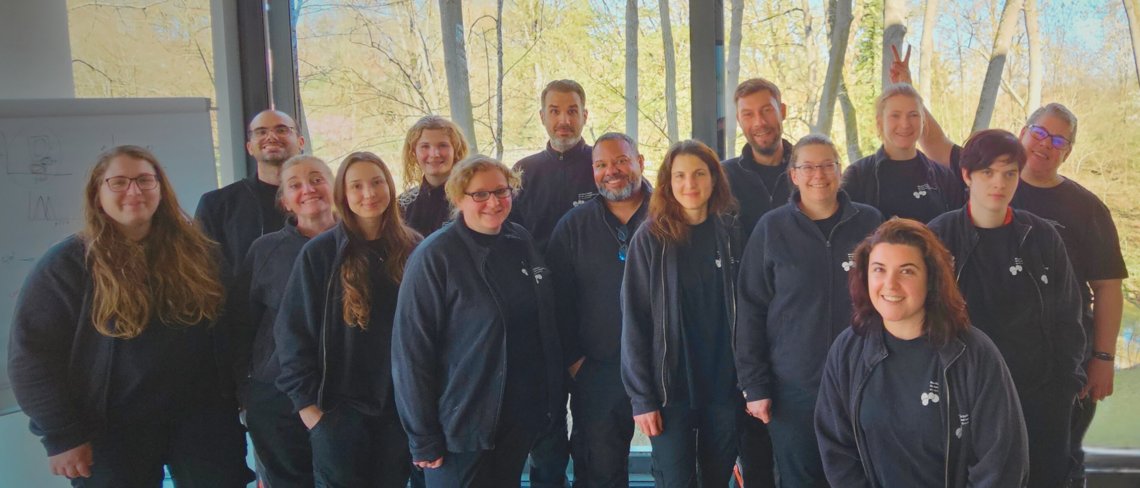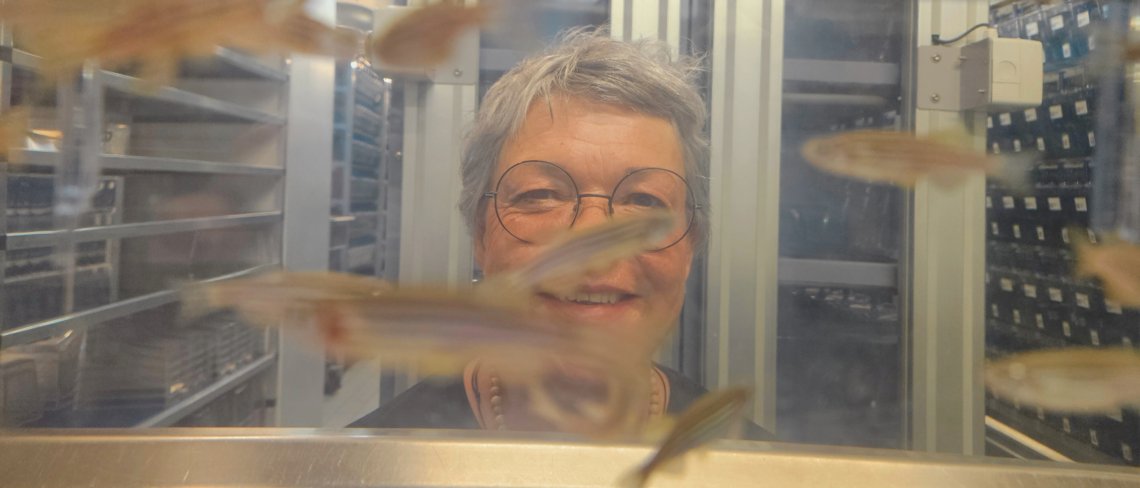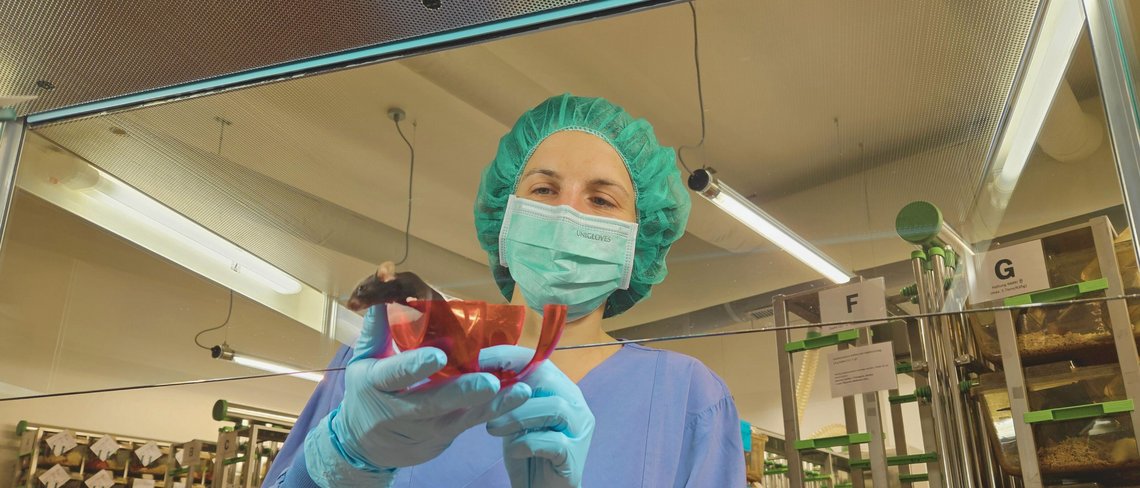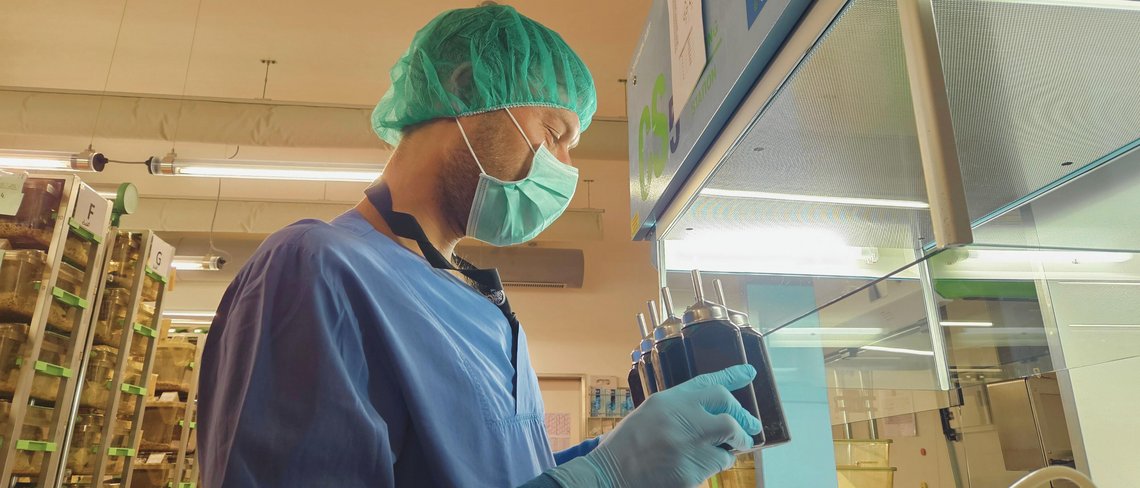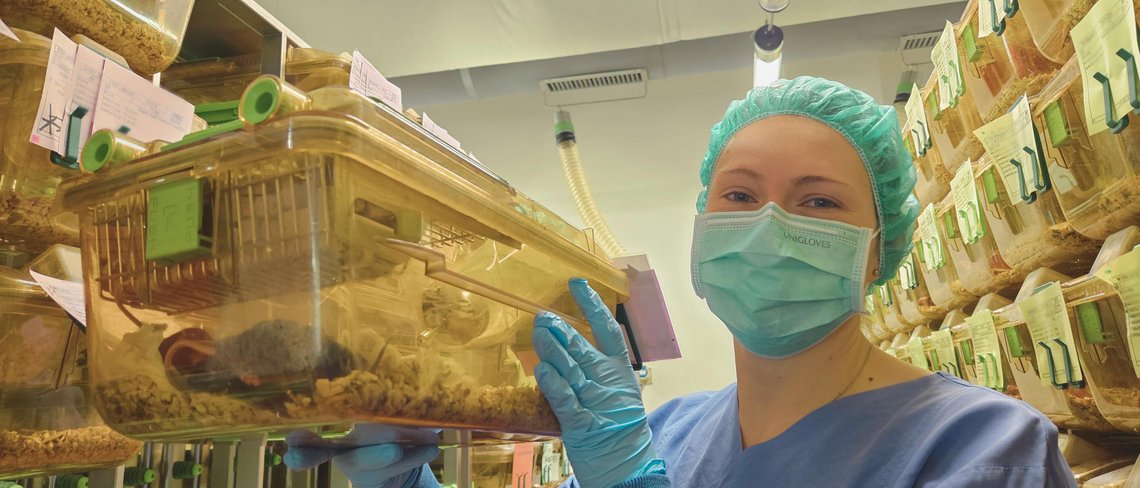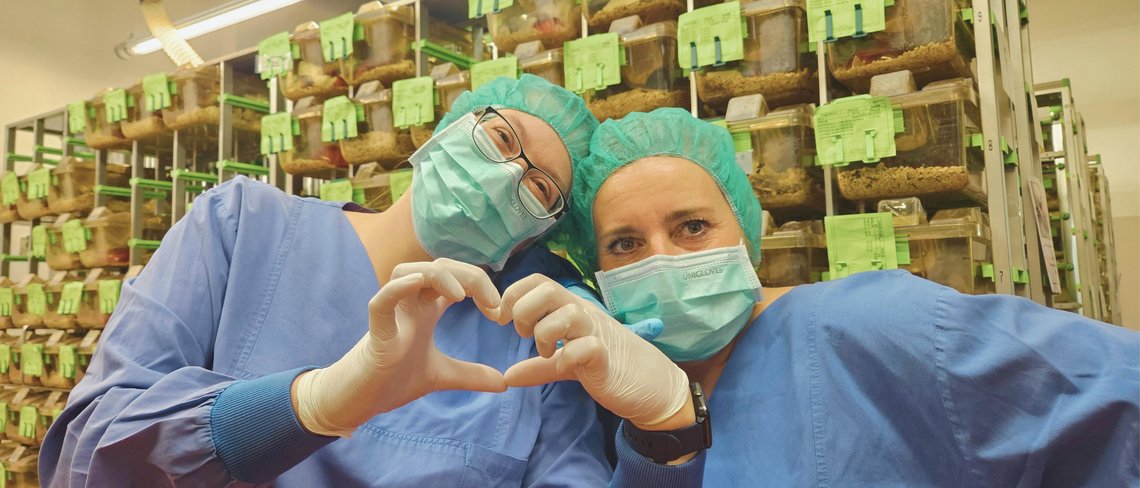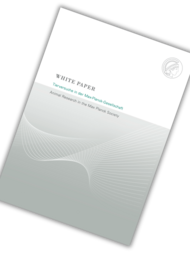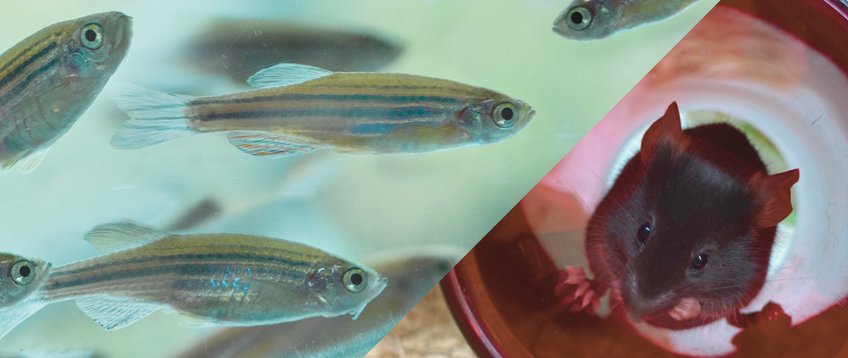
Animal Facility
International Laboratory Animal Day on 24 April: Our employees in the field of animal care talk about their profession and everyday life
Declaration of principle on animal research
In its declaration of principle on the subject of animal research, the Max Planck Society emphasises the indispensability of animal research for biomedical research, but also acknowledges the special responsibility of each individual scientist for the animals used in research and the ethical issues associated with experiments carried out on sentient beings. The gain in insight expected from an experiment must be weighed against the harm inflicted on animals – an evaluation for which there are no universally accepted standards.
In its White Paper, the Max Planck Society has adopted a series of measures designed to achieve the best possible compromise between the obligation to protect the animals used for research and the need to perform research with sentient beings in order to gain insights into the processes supporting the life of organisms. These measures include:
- strengthening the culture of care for the animals; this is to be achieved through improved coordination of animal welfare within the MPG, while at the same time maintaining the highest quality of science
- Further refinement and reduction of use animals in research - scientific insights should be used to reduce the number of experiments and minimize the potential harm inflicted on the animals
- transparent presentation of animal research for the general public
- research aimed at improving the implementation of the 3 R principle
- research on the living conditions of research animals, their social behaviour, perception of pain, consciousness and their right for life
- training of all employees working with animals in animal ethics
